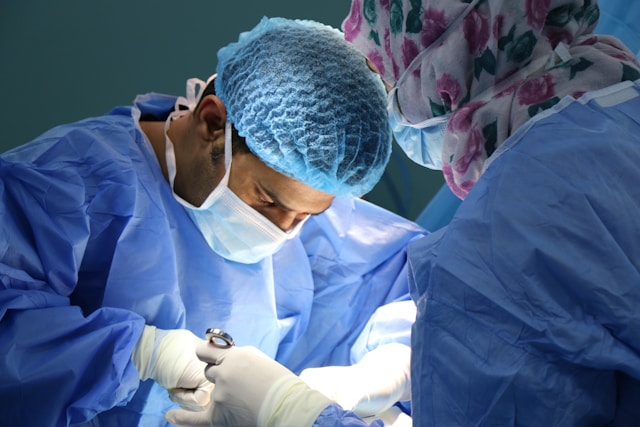Becoming an orthopedic doctor in Canada is a rigorous and rewarding journey that requires dedication, extensive education, and specialized training. Orthopedic doctors, or orthopedists, specialize in diagnosing and treating musculoskeletal system disorders. This guide outlines the steps needed to pursue this career path in Canada.
1. Obtain a Bachelor’s Degree
The first step to becoming an orthopedic doctor, like on this website, is to earn a bachelor’s degree from a recognized university. Although there is no specific major required, most students opt for pre-medical programs, biology, or related fields to prepare for medical school.
Recommended Courses:
- Biology
- Chemistry
- Physics
- Mathematics
- Anatomy and Physiology
2. Take the Medical College Admission Test (MCAT)
After completing your undergraduate degree, you must take the MCAT. This standardized test evaluates your knowledge and skills in areas critical for medical studies. A high score on the MCAT is crucial for gaining admission to medical schools in Canada.
Preparation Tips:
- Enroll in an MCAT preparation course
- Take regular practice tests
- Focus on strengthening weak areas
3. Attend Medical School
Gaining admission to medical school in Canada is highly competitive. Medical school typically lasts four years and consists of two phases: pre-clinical and clinical. The first two years involve classroom learning, while the last two years focus on clinical rotations across various medical specialties.
Key Subjects:
- Anatomy
- Biochemistry
- Pharmacology
- Pathology
- Medical Ethics
4. Complete a Residency in Orthopedic Surgery
After earning your medical degree, you must complete a residency in orthopedic surgery. Residency programs in Canada typically last five years and provide comprehensive training in diagnosing and treating musculoskeletal conditions, including surgical procedures.
Residency Training:
- General Surgery
- Pediatric Orthopedics
- Trauma and Emergency Care
- Adult Reconstruction
- Spine Surgery
5. Obtain Certification from the Royal College of Physicians and Surgeons of Canada (RCPSC)
Upon completing your residency, you must obtain certification from the RCPSC. This involves passing rigorous written and oral examinations that test your knowledge and competency in orthopedic surgery.
Certification Process:
- Written Examination
- Oral Examination
- Continuous Professional Development
6. Obtain Provincial Licensing
In addition to RCPSC certification, you must obtain a license to practice medicine in the province where you intend to work. Each province has its own medical regulatory authority with specific licensing requirements.
Licensing Steps:
- Apply to the provincial medical regulatory authority
- Provide proof of education and training
- Pass any required examinations
7. Gain Experience and Build Your Practice
After obtaining certification and licensing, gaining practical experience is crucial. Many new orthopedic surgeons begin their careers working in hospitals or established clinics. Building a reputation for excellent patient care and surgical outcomes is essential for establishing a successful practice.
Tips for Building Your Practice:
- Network with other healthcare professionals
- Join professional organizations (e.g., Canadian Orthopaedic Association)
- Participate in continuing education and training
8. Stay Updated with Advances in Orthopedic Surgery
Orthopedic surgery is a dynamic field with continuous advancements in techniques and technologies. Staying current with these developments is vital for providing the best patient care. Attend conferences, read medical journals, and engage in professional development activities.
Continuing Education:
- Attend Industry Conferences
- Subscribe to Medical Journals
- Participate in Workshops and Training Courses
Conclusion
Becoming an orthopedic doctor in Canada is a demanding but fulfilling career choice that requires a commitment to extensive education and continuous learning. By following these steps and remaining dedicated to advancing your skills and knowledge, you can achieve a successful career in orthopedic surgery.









